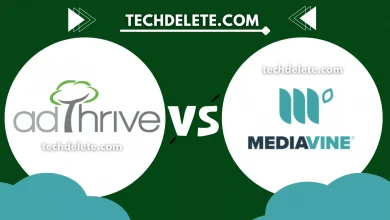This article is not meant to be an exhaustive list of every possible E-A-T signal Google could be using, but a look at some signals that Google is most likely to be used to evaluate E-A-T, based on supporting evidence and documentation available to us.
Beneficial Purpose, E-A-T, and YMYL: The Keys to Understanding Google’s Definition of Quality for Web Pages & Content
The Search Quality Evaluator Guidelines have been updated three times: in July 2018, May 2019 and again in October 2021. Multiple algorithm updates have happened between now and the original release date, too, including some major Core updates.
This guide references all the information about the current updates and incorporates them into how we understand E-A-T and YMYL.
Remember, the Search Quality Evaluator Guidelines (SQEG) only give us clues, not definitive answers, on Google’s ranking factors. We can only analyze and infer what it all means.
But, it turns out, there is more than enough to go on for making sure our content is up to snuff.
Other interesting information about the reputation score from the patent:
- An author can have multiple reputation scores depending on how many different topics they publish content on.
- An author’s reputation score is independent of the publisher.
- Reputation score can be downgraded if duplicate content or excerpts are published multiple times.
- The reputation score can be influenced by the number of links of the published content.
YMYL: Your Money or Your Life Content
Your Money or Your Life (YMYL) content is the type of information that, if presented inaccurately, untruthfully, or deceptively, could directly impact the reader’s happiness, health, safety, or financial stability.
In other words, the stakes are high for this type of content. If you create a YMYL page with bad advice or bad information, it could affect people’s lives and livelihood.
Google takes this content very, very seriously. Experts with relevant expertise need to write YMYL content.
- News and current events on topics like business, science, politics, and technology
- Government, law, and civics-related topics (voting, social services, legal issues, government bodies, etc.)
- Financial advice on taxes, retirement, investments, loans, etc.
- Shopping information, such as researching purchases
- Medical advice, information on drugs, hospitals, emergencies, etc.
- Information on people of a particular ethnicity, race, religion, nationality, sexuality, etc.
If you offer anything for sale through your site, it puts you in the ymyl class of sites as well, making it even more imperative that you pay close attention to this.
- An author can have several reputation scores, depending on how many different topics he publishes content on. That is, an author can have reputation for multiple topics.
- The reputation score of an author is independent of the publisher.
- The reputation score can be downgraded if duplicates of content or excerpts are published multiple times.
In this patent there is again a reference to links – so the reputation score of an author can be influenced by the number of links of the published content.
The following possible signals for a reputation score are mentioned:
- How long the author has a proven track record of producing content in a topic area.
- How well known the author is.
- Ratings of the published content by users.
- If content by the author is published by another publisher with above-average ratings.
- The number of content published by the author.
- How long it has been since the author’s last publication.
- The ratings of previous publications of similar topic by the author.
Furthermore, the patent discusses a credibility factor for authors. For this, verified information about the profession or the role of the author in a company is relevant. The relevance of the profession to the topics of the published content is also decisive for the credibility of the author. The level of education and training of the author can also have a bearing here.
Name Recognition of the Author/ Publisher:
“Show that there’s a real organization behind your site. Showing that your website is for a legitimate organization will boost the site’s credibility. The easiest way to do this is by listing a physical address. Other features can also help, such as posting a photo of your offices or listing a membership with the chamber of commerce.
Fake Author E-A-T & YMYL:
Google famously experimented with Authorship, and publishers as entities, in the past. Ten years or so ago, there was even special authorship markup being used, and Google had its very own G+ platform to mine for all kinds of data regarding authors and authorship relationships to their work.
And they abandoned it all. Took a look at the actual end results of years of invested experimentation, and shut it all down. Think hard about that context. Never forget it.
Remember, Google already have the link graph that is already tuned so well to dealing with ‘importance’ and ‘authority’ in its way. So anything added as some new ‘authorship’ (whether individual or organizational) needs to offer something far more, something different, and most of all, something actually useful to getting better search results.
Authorship as they had it before wasn’t it. Didn’t even come close enough to be worth keeping and tweaking. G+’s “Circles” really just duplicated what the link graph already did, though I expect it was nice to have the comparison data to verify precisely where any variance might be, and refine the link graph to account for it.
The Knowledge Graph isn’t the right tool either. The Knowledge Graph is a database of factoids. It doesn’t deal with opinions, and isn’t meant to. The Knowledge Graph cares about the facts about a publisher, such as what publications they have, what their audience reach might be, a valuation of the company. Hard facts.
It doesn’t care about opinion. Doesn’t care about whether people find it more fun than serious, or more serious than fun. That’s opinion. It cares about facts. The Link Graph covers reputation, opinion and populism already. The Knowledge Graph not only doesn’t, but is *deliberately* not meant to.
Google is able to recognise an author and all of that author’s content and mentions across the web, without supporting authorship markup anymore. Google calls the process entity reconciliation.
I’m aware of the claims. However, 2 things come to mind immediately. The first is that Google have *claimed* to have eliminated more than 90% of spam at least 15 times over, so that we should now only be seeing less than 10 percent of ten percent of ten percent of ten percent (fifteen times repeating) and thus anyone creating spam should have less than one chance in a million of it getting ranked. Obviously, that is not true. Google seem to have a very different definition of spam that excludes an awful lot of genuine garbage somehow.
The second is less contentious, and that’s that the way most SEOs (and other creators) think Google care about authorship is NOT at all the way Google do. Top creators are often exactly who people will go to to attempt to make garbage ideas still work. Just as a lot of very fine actors do some very dubious advertising and endorsements, so many established authors churn out some dross sometimes, while new, unknown authors have bestsellers. Let’s not even get into some of the best movie directors being hired to put their name and touch to some really awful movies.
No, Google’s big take on authorship is a lot like that of Bill Slawski when he goes hunting for what else the people behind one patent may have done, giving it further context. I fully expect to see this almost exclusively in the scientific and academic realm, and not at all in the general media, blogging, etc.
I think that is really the key factor… “the way most SEOs (and other creators) think Google care about authorship is NOT at all the way Google do.”
Authors (as personal brand entities, I suppose) have some value much like the establishment and connection of any other known entity in the knowledge graph. But, as you say, it does NOT work nor provide the same functionality as “authorship” did in that past.
as I said, just because they don’t use the rel author/publisher tags anymore doesn’t mean that authorship doesn’t exist within the context of entities. It’s just an indirect factor, but it makes it easy for people to u derstand if we talk about authorship. We already know Google uses h-index in its algorithm for Google Scholar and some of those results are pulled through to the SERPs so that’s more like direct authorship as a ranking factor.
My take is that it’s a lot like Michelin star chefs. The restaurant itself earns the star. Authorship would be a useful way of spotting that the chef in this restaurant is the same one that worked at four prior restaurants when they earned their michelin star.
What that means to the millions of guys and girls working in fast food joints, small diners, little cafes, various drive-throughs, etc. is “Absolutely nothing”. It’s a system that is designed to detect that the Gordon Ramsay who’s doing one thing is the same Gordon Ramsay, the famous one, or not. It does absolutely nothing at all for Doris who’s worked at the same small diner (that is thriving) for the past 30 years.
Like the Michelin stars, there is going to be a massively high threshold for when it applies at all. It’s a one-percenter thing. Just the nature of the accomplishment and awards is going to be about publishing words rather than fine cuisine.
I think for a small business owner, who is an expert in their field, they can build up a body of work about a topic, which Google can understand via entities and potentially provide a ranking boost to that author’s body of work. I see a similar thing with a publisher – stay on topic get slightly higher rankings. But you’re right, they will generally be outrank by someone eith a bigger volume of work in that niche. And that was if that was the only thing at play.
I think such a person can already do a lot, especially with brand SERPs. But I don’t think it will count at all with what Google are looking to do with authorship. The link graph already covers the citations side just fine. Authorship needs to do something completely different to be worth having.
It would be far more exclusive, and based on something where there is a firm human reviewed quality component, used specifically for where people have been doing manipulations with links, and with getting themselves their brand SERPs.
I’m honestly expecting it to be a lot like YMYL stuff, where only certain searches use it at all, and there it is to eliminate the chance of false information by using people who are not necessarily famous, but rather are iron-clad for factual accuracy and expertise. Something that Google can look up, but which is a sure-fire sign of quality that can’t be realistically manipulated.
That’s why I am so sure it’ll be something so exclusive that it’s a one-percenter thing.



